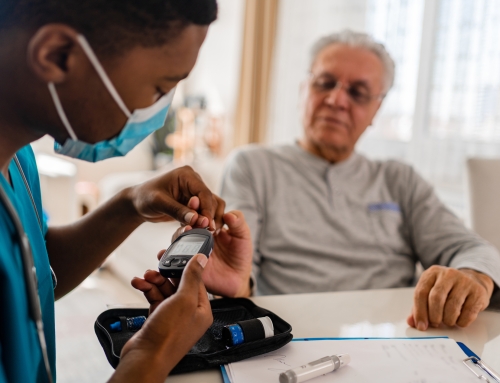By David Mahoney, MD
As a member of Dialysis Patient Citizens, you have chosen to become involved, speak up for what is important to you and take charge of the management of your health. Dialysis modality, diet, medications, exercise, management of your other health-related issues, all require your informed decision-making and action. But despite this high level of involvement in their health care, few dialysis patients have addressed the issue of advance care planning. “I don’t want to talk about that now.” “That’s for sick people, and I am doing well.” “That really scares me.” “I am NOT ready to talk about THAT!” Such reactions and comments are normal and expected. To be honest, most health care professionals are very uncomfortable talking about advance care planning as well. It is when we address such questions in a systematic and well-timed manner that an uncomfortable issue is probably the one that addresses comfort, dignity and autonomy above all else.

I once attended an excellent presentation on Advance Care Planning given at a local hospital. The presenter was charismatic, engaged, and above all, an expert on the topic. “How many of you in this room have life insurance?” Every hand went up. “How many of you are going to live forever and won’t need life insurance?” Of course, not a single hand went up amid a fair amount of laughter. “How many of you have a will?” About three quarters of the hands went up. “How many of you have a living will?” About ten percent of the hands went up. “If you care so much about what happens to your stuff after you’re gone, you should care about what happens to you before you get there.” Not much laughter, lots of nods.

We plan for many things in life. We plan for retirement. Where will we live? How long will we work? What will we do with our time? And so forth. As we plan to be well and enjoy life, and while we are well, it is the best time to plan for that day when we will have to make a lot of decisions. Having been in medicine for 35 years, I can tell you with authority that the worst time to make a decision is when you are faced with a stressful emergency. What we also tend to forget is that sometimes there are circumstances where we cannot speak for ourselves and our loved ones must make the difficult decisions, often with no idea what our wishes might be. I can think of no better illustration of this than the beautiful book written by Dr. Atul Gawande, entitled, “Being Mortal.” Dr. Gawande writes of his father, also a doctor, who was diagnosed with a rare type of brain tumor. Dr. Gawande, the son, a well-respected and talented physician, thought he knew exactly how his father would want to approach the management of his disease and the choices he would make. To his great surprise, when he spoke with his father, his assumptions about his father’s wishes were almost totally wrong and drove home an important point. There is no way that we can honor a patient’s wishes if we have not asked them what they are. Therein lies the essence of advance care planning.
Perhaps the best way to frame this discussion is to say that there is no “one size fits all.” You are unique, as are your circumstances, relationships, beliefs, values and wishes. But, what is common to all are a few basic tenets. First, you need to understand your health and the diseases which affect it. You are not a statistic, but knowing what to expect with your health concerns may guide your thinking. Second, ask yourself what your expectations are about your health, what you will or will not be able to do, and how your health conditions will affect your quality of life. Third, understand that this is a dynamic process. As our circumstances change, so will our goals and wishes. Perhaps one of the most important tenets of advance care planning is to reassess plans after a major health event and make appropriate changes. Fourth, this is an activity that requires a team approach, to include yourself, your family, your caregivers, and for many, their clergy or other religious/ spiritual leader. Finally, there are no right or wrong answers. Advance care planning is simply your opportunity to express your wishes in case that “what if” happens.
One of the most common causes of confusion or delay in delivering health care is deciding who is the decision-maker. Many times it is obvious, such as the parent of a minor. What about a widow with several children who are unable to agree on what to do? The way that I like to present this to my patients is to ask, “If you were in a bad car accident and were brought to the hospital unconscious, whom would you choose to speak for you and make your medical decisions?” This approach conveys the need to have a decision-maker, also known as a health care proxy, in an emergency when patients cannot speak for themselves. The first and perhaps most important step in advance care planning is assigning a health care proxy and having it documented. This can be as simple as listing that person as an “emergency contact” at your dialysis facility. However, in order to ensure that the person has authority to act on your behalf, it is best to obtain a Power of Attorney for Health Care. Your social worker can provide information to you on how to do this.
The other aspects of Advance Care Planning essentially address your wishes regarding your health care. What interventions or procedures would you want or not want to have? How would you like to address potential comfort issues? What would you like to ensure regarding your treatment? What information do you wish to have communicated to others, especially family? There are several excellent publications addressing the process of advance care planning. Your social worker can help you learn more about them.

I ask your indulgence in looking at this issue from a doctor’s point of view. No physician wants to say the following:
- I have no idea what he would want me to do. I never asked.
- I should have asked him about his wishes after he had the heart attack, before the stroke, when he could still speak.
- I would never have done that to him, had I known he never wanted it.
- You know, we talked about it but never put it on paper.
- Huge family, really torn, can’t agree about what to do. I should have asked him who would make decisions for him “just in case.”
In summary, Advance Care Planning is nothing more than planning ahead. If I were to give it a slogan, it would be, “My life, my decisions.” It is an opportunity to express your wishes in a formal manner. Help your care team to know your wishes. We can’t honor them if we never asked.
Dr. Mahoney is the Chief Medical Officer for Lifeline Vascular Care and has recently joined the DPC Education Center Advisory Council. He has been a practicing nephrologist for 25 years.



